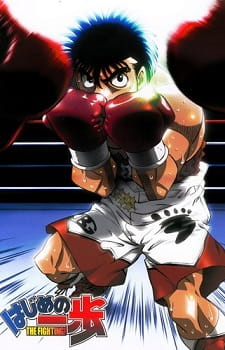
Hajime no Ippo
Summary: In his father's absence, teenager Ippo Makunouchi works hard to help his mother run her fishing boat rental business. Ippo's timid nature, his lack of sleep, and the sea smell make him an easy target for relentless bullies who leave him bruised and beaten on a daily basis. Mamoru Takamura, an up-and-coming boxer, rescues Ippo from a violent after-school incident and takes him back to the Kamogawa Boxing Gym for recovery. Takamura and his fellow boxers, Masaru Aoki and Tatsuya Kimura, are stunned by Ippo's powerful punches—a result of strong muscles developed through years serving his physically taxing family business.
Following brief training under Takamura, Ippo impresses the other boxers in a practice match against prodigy Ichirou Miyata. He gains a rival in Miyata and a coach in Genji Kamogawa, the gym owner and a former boxer himself. As Ippo takes the first steps in his official boxing career, he faces off against a series of challenging opponents, each more powerful than the last. Victory, loss, and a cycle of dedicated training await Ippo on his journey to achieve greatness. With his tough body and unstoppable fighting spirit, the kind young man seeks to take on the world.
[Written by MAL Rewrite]
Description
In his father's absence, teenager Ippo Makunouchi works hard to help his mother run her fishing boat rental business. Ippo's timid nature, his lack of sleep, and the sea smell make him an easy target for relentless bullies who leave him bruised and beaten on a daily basis. Mamoru Takamura, an up-and-coming boxer, rescues Ippo from a violent after-school incident and takes him back to the Kamogawa Boxing Gym for recovery. Takamura and his fellow boxers, Masaru Aoki and Tatsuya Kimura, are stunned by Ippo's powerful punches—a result of strong muscles developed through years serving his physically taxing family business.
Following brief training under Takamura, Ippo impresses the other boxers in a practice match against prodigy Ichirou Miyata. He gains a rival in Miyata and a coach in Genji Kamogawa, the gym owner and a former boxer himself. As Ippo takes the first steps in his official boxing career, he faces off against a series of challenging opponents, each more powerful than the last. Victory, loss, and a cycle of dedicated training await Ippo on his journey to achieve greatness. With his tough body and unstoppable fighting spirit, the kind young man seeks to take on the world.
[Written by MAL Rewrite]
Available At
Warning: Array to string conversion in /home/hianime.me.uk/public_html/anime.php on line 243
Array
Hajime no Ippo Pictures
Hajime no Ippo Review
Hajime no Ippo — In his father's absence, teenager Ippo Makunouchi works hard to help his mother run her fishing boat rental business. This overview is intentionally spoiler-free and focuses on tone and intent rather than plot specifics.
Thematically, It sits firmly within Sports conventions as a TV work and has garnered attention (MAL score: 8.78). This work explores character dynamics, tonal shifts, and the interplay between narrative ambition and execution. The story's pacing and tonal choices are crafted to complement the central ideas, often emphasizing atmosphere and emotional truth over explicit exposition. The show's ability to evoke a consistent mood — whether melancholic, exuberant, or contemplative — is a recurring strength, and the scenes are constructed so viewers can infer stakes without needing explicit spoilers.
Characterization is a core pillar here. Protagonists and supporting figures are written with distinct motivations and narrative roles; even when archetypal, the series invests in small behavioral details that make choices feel earned. Character arcs are handled with an eye for gradualism: development often arrives through incremental beats rather than abrupt, expository shifts. The interactions between characters create texture, and relationships are used to illuminate both personal flaws and larger thematic concerns.
On the visual front, production values play a significant role. The animation quality varies by sequence but frequently showcases thoughtful direction and composition. Background art, framing, and color palettes are used deliberately to support tone — quieter scenes favor muted palettes while action or heightened emotional beats employ brighter, more kinetic visuals. Direction choices, such as camera movement and shot selection, often elevate scenes beyond their raw script, creating moments that linger in the viewer's mind.
The soundscape — score, incidental music, and sound design — complements the visual language. Music cues are placed to maximize emotional resonance without manipulating the audience with melodrama; this restraint often leads to more authentic emotional payoff. Sound design punctuates key moments, and when the series leans on silence, those quieter moments are given weight by measured audio choices.
Pacing and structure are handled with craft. Episodes are arranged to build tension and release methodically, and the narrative rarely rushes through important emotional beats. That said, the deliberate pacing may feel slow to viewers who prefer faster plot turnover; the reward is greater nuance and an accumulation of meaning across the series. Accessibility is generally good — one can appreciate surface-level pleasures, while repeat or attentive viewing reveals additional layers.
No title is without flaws. Occasional unevenness in subplots or variable animation across episodes can be distracting. Some tonal shifts might feel abrupt if you expect uniformity; others will argue that those shifts are purposeful. These are worth noting, but they seldom undercut the larger achievements of the work.
In sum, Hajime no Ippo offers a rich experience for viewers who value character-driven storytelling, considered visual design, and a soundtrack that supports rather than overwhelms. For fans of Sports, this is an especially rewarding watch. It's recommended for those who appreciate layered narratives and artistry in animation, and best approached with patience and attention to nuance.
Characters & Voice Actors

Aoki, Masaru
Main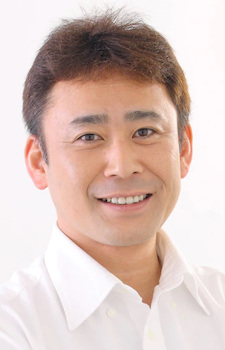

Aoki, Masaru
Main

Aoki, Masaru
Main

Aoki, Masaru
Main

Aoki, Masaru
Main

Aoki, Masaru
Main

Kamogawa, Genji
Main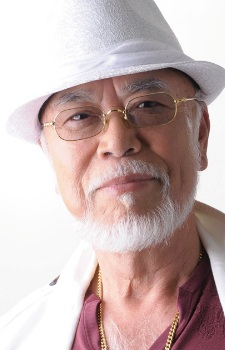

Kamogawa, Genji
Main

Kamogawa, Genji
Main

Kamogawa, Genji
Main

Kamogawa, Genji
Main

Kamogawa, Genji
Main

Kimura, Tatsuya
Main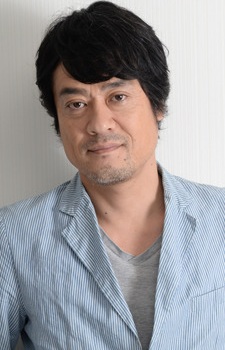

Kimura, Tatsuya
Main

Kimura, Tatsuya
Main

Kimura, Tatsuya
Main

Kimura, Tatsuya
Main

Kimura, Tatsuya
Main

Makunouchi, Ippo
Main

Makunouchi, Ippo
Main
Staff
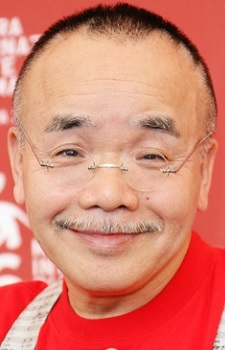
Maruyama, Masao
Producer

Morosawa, Masao
Producer

Ooshima, Mitsuru
Producer

Tamura, Manabu
Producer

Yamashita, Hiroshi
Producer

Yoshimoto, Satoshi
Producer

Nishimura, Satoshi
Director, Storyboard

Mima, Masafumi
Sound Director

Hata, Yoshito
Episode Director

Hayashi, Hideo
Episode Director, Storyboard

Ishiyama, Takaaki
Episode Director

Iwamoto, Yasuo
Episode Director

Kawamura, Kenichi
Episode Director, Storyboard, Assistant Director

Kojima, Masayuki
Episode Director, Storyboard

Masaki, Shinichi
Episode Director

Masuhara, Mitsuyuki
Episode Director, Storyboard

Matsumura, Yasuhiro
Episode Director, Storyboard

Nakamura, Ryousuke
Episode Director, Script

Nanba, Hitoshi
Episode Director

Ogiwara, Rokou
Episode Director, Storyboard